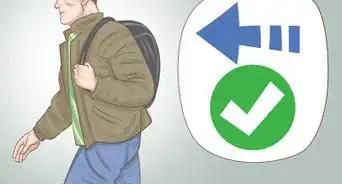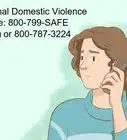This article was co-authored by Saul Jaeger, MS. Saul Jaeger is a Police Officer and Captain of the Mountain View, California Police Department (MVPD). Saul has over 17 years of experience as a patrol officer, field training officer, traffic officer, detective, hostage negotiator, and as the traffic unit’s sergeant and Public Information Officer for the MVPD. At the MVPD, in addition to commanding the Field Operations Division, Saul has also led the Communications Center (dispatch) and the Crisis Negotiation Team. He earned an MS in Emergency Services Management from the California State University, Long Beach in 2008 and a BS in Administration of Justice from the University of Phoenix in 2006. He also earned a Corporate Innovation LEAD Certificate from the Stanford University Graduate School of Business in 2018.
There are 15 references cited in this article, which can be found at the bottom of the page.
This article has been viewed 188,528 times.
Being left alone in your home can be pretty boring, and sometimes even a little scary, but it doesn't have to be. As long as you follow the house rules, take some basic safety precautions and find a few ways to keep yourself entertained, passing a night by yourself can actually be fun. Once you've made sure that all the doors are locked and you know what numbers to call in case of an emergency, you can start thinking up activities that will allow you to take advantage of a little peace and quiet.
Steps
Keeping Yourself Entertained
-
1Watch TV. Kick your feet up and look for a funny program to enjoy. There's lots of new movies and shows waiting to be discovered on streaming apps like Netflix. Grab yourself some popcorn or candy and turn an ordinary viewing session into a home theater experience. You've finally got the tube all to yourself for once![1]
- Change the channel on anything too violent or spooky, or you may just end up scaring yourself.
- Getting absorbed in the voices and antics on the screen can keep you from feeling quite as isolated.
-
2Play video games. Hook up a console and try to beat one of your favorite games, or find a new game on your computer or mobile device to get into. You could even play multiplayer games online with your friends.[2]
- Use a gaming headset to talk to your friends while you play. It will be like having them there in the room with you.
- Staring at a screen for too long can be hard on your eyes. Take a break every now and then to have a snack or go on a walk through the house.
Advertisement -
3Read a book. Take advantage of this chance to catch up on your recreational reading. You can get lost in a book for hours, all while learning fascinating new things and strengthening your imagination. Not a bad way to spend a quiet evening alone!
- Prepare for your night at home by picking up some new books from the library.
-
4Crank up some music. Listen to something upbeat that you can sing along to, or slow things down with some classical music to calm your nerves. Music makes a great companion, especially when you're alone in a big, empty, silent house.
- Try not to play your music so loud that you can't hear what's going on around you.
- Throw your own private dance party. No one else is around, so you can be as silly as you want!
-
5Call a friend. Have a conversation about your day, your plans for the weekend or what's been going on at school. Hearing a familiar voice can be comforting. It's also a good way to pass the time—just make sure you have permission to use the phone before dialing up someone you know.
- Answer incoming calls right away. It may be your parents trying to get in touch with you.
- If you're allowed to use the internet, you could also chat with your friends online.
- Never talk to strangers over the phone or internet.[3]
-
6Finish your homework. If your want to make the best use of your time, sit down with your textbooks, jotters and notes and give them your undivided attention. This is a good opportunity to work on any assignments you haven't completed, since you'll be able to study uninterrupted.[4]
- Should you find yourself stuck, circle the problem and ask your parents or teacher about it the next time you have a chance.
- Be responsible and get your homework done before you begin enjoying other activities. That way, you'll have more time to play later.
-
7Go to bed. Falling asleep can be the hardest part of being at home by yourself. If you're having trouble getting to sleep, try reading a book, working a crossword puzzle or writing in your journal until you doze off. When you wake up, it will be daylight again and your loved ones will be on their way back.[5]
- Leave a light on in the hallway if it makes you feel better.
- Don't stay up too late or you'll be tired the next morning.
Making Last Minute Preparations
-
1Talk to your parents about their plans. Get the important details about where they're going and when they'll be coming back. This will give you an idea of how long you'll be alone. It's also important to know how to get in touch with them if you need to.[6]
- Spending one night home alone isn't so bad, but if they're going to be gone for a few days, you may be better off staying with a friend or relative.
- Your parents might have special instructions or rules for you to follow, like what parts of the house are off-limits, when to go to bed and what you are and aren't allowed to watch on TV.[7]
-
2Keep a list of emergency contacts in plain sight. Sit down with your parents and write down the phone numbers for the local police department, fire station, poison control agency and other emergency services. Make a separate list with the names and phone numbers of nearby friends and family who you can call in the event of an accident.[8]
- Leave the list on the kitchen counter, refrigerator or another place where you can easily find it.[9]
- If you have a smartphone, you can program these numbers into your contacts so you won't have to refer to a physical list.
-
3Let someone else know you're by yourself. Have your parents mention to a family member or trusted neighbor that you'll be the only one home for the evening. If they live nearby, they may be able to check up on you periodically and see how you're doing.[10]
- Never tell a stranger that you're going to be home alone.[11]
-
4Make sure you're stocked up on food. Check the pantry and refrigerator for something to eat when you get hungry. Use the microwave to heat up a frozen meal or reheat the previous night's leftovers. Fresh fruits, vegetables and granola bars are also good to have around.[12]
- Crackers, trail mix, peanut butter sandwiches and juice all make quick and easy snacks (no cleanup needed!).[13]
- Stick to cold or microwavable foods that won't require you to use the oven or stovetop.
Staying Safe
-
1Lock the doors. Go around the house and double check that each of the doors is securely locked. Once your parents have left, lock the door behind them promptly. These doors should stay locked for the rest of the night.[14]
- Don't open the door for anyone you don't know or leave the house under any circumstances, unless there's a fire, break-in or another emergency.[15]
- Learn how to lock the door handle, deadbolt and chain if your doors have several different locks.
-
2Stay close to a phone. If you own or are borrowing a cell phone, keep it near you at all times. If you live in a home with a landline phone, make sure that it's working and you can get to it in a hurry. Stay off of the phone unless it's an emergency or your parents have told you it's okay to call a friend.[16]
- Learn how to place emergency calls on a smartphone—this is usually as simple as pressing a button.[17]
- Be able to recite your name, address and phone number in case you have to call 911.
-
3Be prepared to answer the phone or door. When caller asks to speak to one of your parents, don't tell them that they're not home. Instead, say something like "They're busy at the moment. Can I take a message?" If someone you know comes to the door, only open it long enough to tell them that your parents are in another part of the house and aren't available to talk.[18]
- Ask the person politely to call again or come back later.
- Unless you know who's knocking, it may be safest not to answer the door.[19]
-
4Leave a few lights on around the house. Turn on enough lights so that there's at least one room visibly lit from all sides of the house. It may also be a good idea to switch on the TV or leave some music playing at a steady volume. Lights and sound make it look like there's people home, which can scare off burglars.[20]
- Keeping your house well-lit inside and out will also allow you to spot anyone who happens to be prowling around.
-
5Keep a flashlight nearby. You'll need one to find your way around if the power goes out. Leave the flashlight in a central area, like the kitchen table or even your bedroom. That way, you won't be forced to grope around in the darkness to find it.[21]
- Test the flashlight to make sure the batteries work before you go off and forget about it. It's also not a bad idea to have some extra batteries on hand, just in case.
- It's unsafe to use candles or matches during a power outage. These can easily be dropped or knocked over, which could cause a fire.
Warnings
- Avoid using dangerous tools or appliances or performing tasks you would ordinarily need assistance for.⧼thumbs_response⧽
- Don't do anything that you wouldn't do if your parents were home. If you get caught, you could get in big trouble.⧼thumbs_response⧽
References
- ↑ https://www.realsimple.com/work-life/life-strategies/noelle-howey-essay
- ↑ http://www.parenting.com/article/5-steps-to-smart-video-game-choices
- ↑ http://kidshealth.org/en/parents/net-safety.html#
- ↑ http://www.pamf.org/preteen/growingup/safety/homealone.html
- ↑ http://kidshealth.org/en/kids/cant-sleep.html
- ↑ http://kidshealth.org/en/parents/home-alone.html#
- ↑ https://www.purewow.com/family/signs-your-child-can-stay-home-alone
- ↑ https://www.healthychildren.org/English/safety-prevention/at-home/pages/Is-Your-Child-Ready-To-Stay-Home-Alone.aspx
- ↑ https://www.purewow.com/family/signs-your-child-can-stay-home-alone
- ↑ http://www.pamf.org/preteen/growingup/safety/homealone.html
- ↑ http://www.phila.gov/dhs/pdfs/homealone.pdf
- ↑ https://www.purewow.com/family/signs-your-child-can-stay-home-alone
- ↑ http://www.parents.com/toddlers-preschoolers/feeding/healthy-eating/the-20-best-snacks-for-kids/
- ↑ http://www.redcross.org/news/article/Kids-Home-Alone-Follow-These-Safety-Steps
- ↑ http://www.redcross.org/news/article/Kids-Home-Alone-Follow-These-Safety-Steps
- ↑ http://www.phila.gov/dhs/pdfs/homealone.pdf
- ↑ Saul Jaeger, MS. Police Captain, Mountain View Police Department. Expert Interview. 21 February 2020.
- ↑ http://aplatformforgood.org/teaching-kids-effective-security-habits-around-the-home/
- ↑ http://micheleborba.com/safety-smarts-for-kids/
- ↑ http://www.npr.org/2016/02/23/466603833/should-you-leave-your-lights-on-at-night-it-depends
- ↑ http://www.pamf.org/preteen/growingup/safety/homealone.html

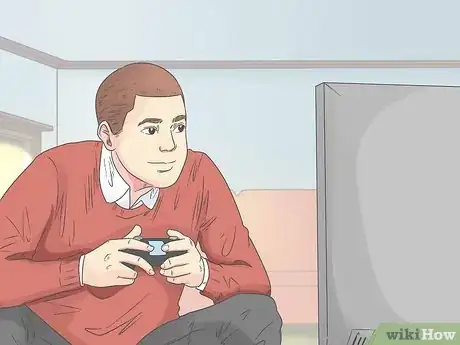

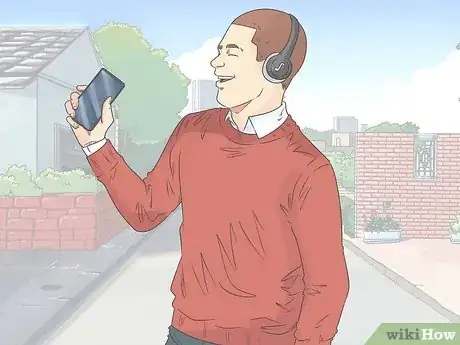
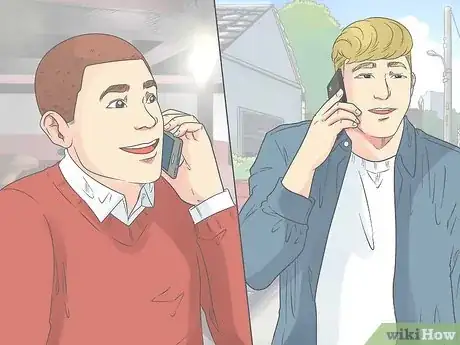

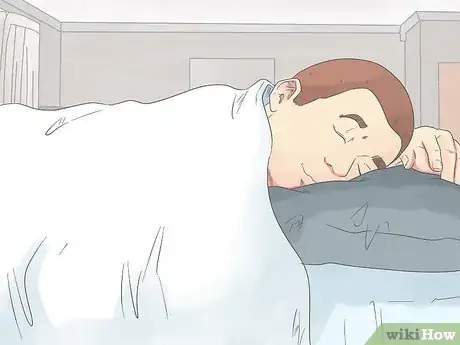
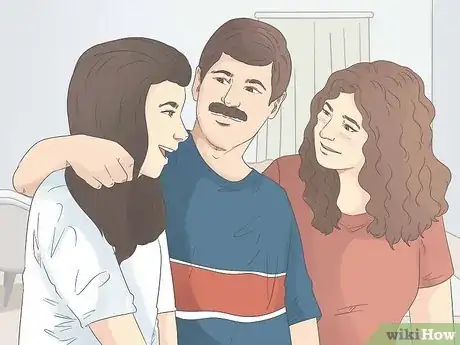
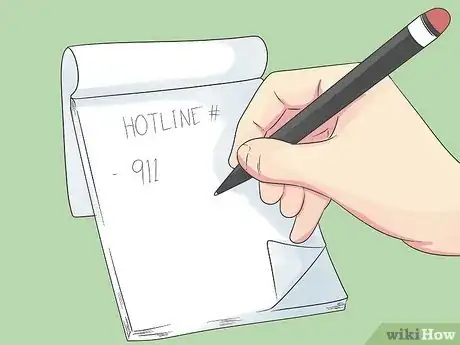

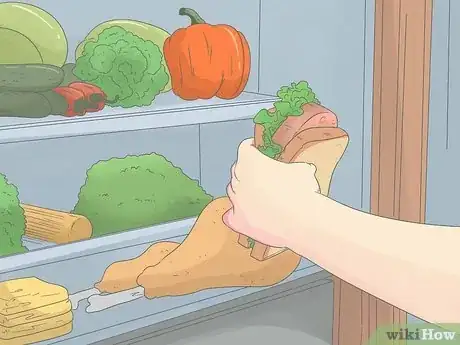
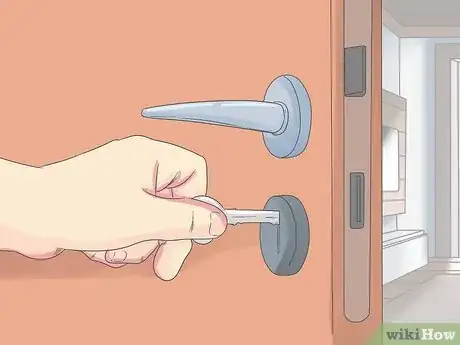
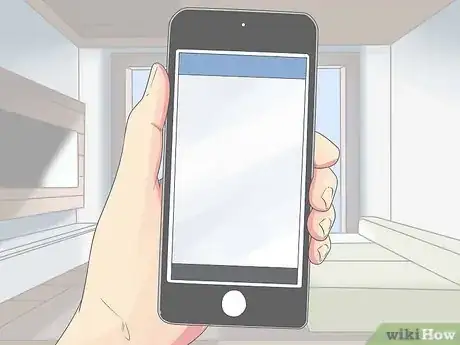


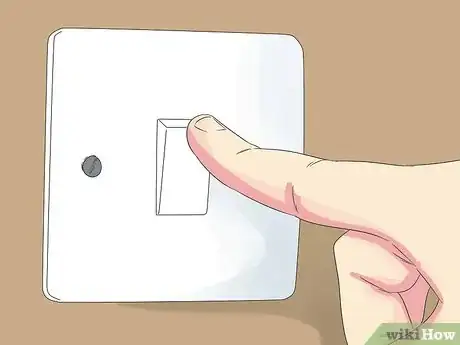
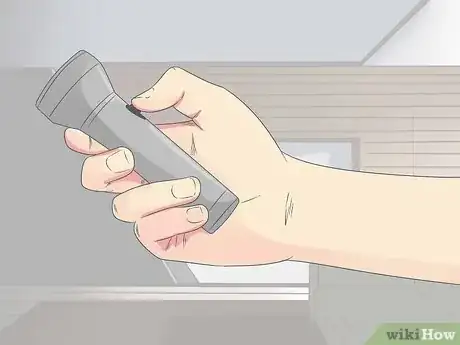

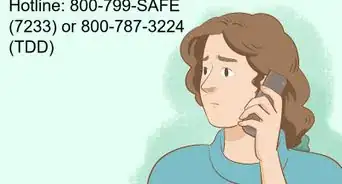



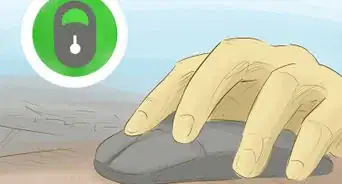
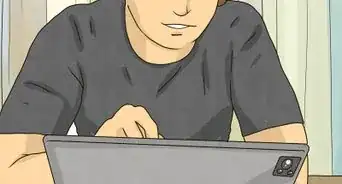

-Step-14-Version-2.webp)

-Step-10.webp)
